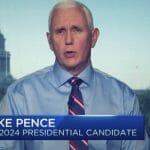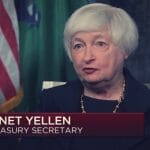Kyle Bass, Hayman Capital Management CIO, talks everything from China to the Fed in an exclusive interview with Worldwide Exchange’s Brian Sullivan.
Kyle Bass Talks Intellectual Property Theft, China, Markets And The Fed
Q4 hedge fund letters, conference, scoops etc
Transcript
Pleased to be joined now by Heyman Kappel divisors Kyle Bass joining us from Dallas. Kyle listen you've got the People's National Congress which has kicked off in China an incredibly important event laying out a bunch of things but including your economic plans here do you still remain concerned about China. Do you think that a trade deal is going to solve our quote problems with that country.
I mean Brian I like the way you set me up with the question you know I don't believe a trade deal will solve any of the problems between our two countries. You know we have we have a golden opportunity today for a global reset in our relationship with China. Trade is such a small part of our relationship there and yet we run a 400 billion dollar a year trade deficit with China which you know as as the global hedge Monic currency and reserve currency we must run deficits with the world to supply the world with dollars. Now the magnitude of those deficits can come into question. But with China you know our real issue is force technology transfer its intellectual property theft its industrial subversive industrial policies that let's say circumvent WTO rules it's basically the way the Chinese lie cheat and steal their way through our economy. We have we basically have no we we have no way to truly measure and or counteract those things that actually have huge returns on investment for them a massive negative return on investment for us.
But the reason that I asked that question coming in sort of knowing perhaps a bit of your answer Kyle was this from what we know of that deal and again this is all reporting right so we haven't seen the actual structure of the deal that there will be more IP protections for U.S. companies in any kind of a deal the U.S. Government Section 3 a one large report they have mandated this sounds like you don't believe those protections are going to be strong enough. If and when they are completed.
I think that there's more of a desire amongst the administration to hear the Chinese admit to the to the enormity of intellectual property theft that they've engaged in over the last 10 years. You know our own government whether you're looking at the Defense Department or whether you looking at the trade reps reports to the White House they all estimate that that number's 200 to 300 billion dollars worth of IP per year. And right there there's a return on that annually as well. So over the last decade they've stolen you know two to three trillion in IP from us and really theU.S. is number one asset. In my view is our is our ingenuity our intellectual property our our our ability to innovate.
Something like 75 80 percent of the S&P is intrinsic value is intangible assets is idea is patents that that that that's our game and they're stealing our game from us.
And so it's really important for this new agreement whatever it is to be to be measurable and punishable. And I think those are the things that hopefully our teams working through. You know I know the various constituents of our negotiating team I know many of them and they all have their heads in the right place. They're all doing the right things for our country. The big question is which side of the bed does our fearless leader wake up on on the day in which that meeting happens with the president.
Listen we can make a deal. It can have all kinds of legal protections if China or its companies continue to do what they have been doing. Then the deal is just only as good as it is on paper. Do you think U.S. companies and U.S. courts need to be more aggressive in holding Chinese companies accountable. I mean of course and well they are silly.
There so many things that our government can do to reciprocate with the Chinese on these on these issues. You know why do we have hundreds and hundreds of Confucius Institutes in our in our educational institutions in our in our colleges. Why do we have. Why do we allow Chinese points of presence in our in our telecom switching facilities when they don't allow any of ours and there's you know there's so many things that are so simple for us to do. We just need to do it. And then on the judicial side of things we could make a few judicial changes in the US that really make it more difficult for the Chinese to act the way they've been acting with our intellectual property here in the U.S. was the Chinese market up 25 percent this year. Well I mean the Chinese print more money than any any other countries ever printed in gross terms in world history. You know since 2001 they've printed roughly 30 trillion dollars worth of RMV. Think about that for a second. You know the debate here in theU.S. at the Fed is is you know is the Fed balance sheet too big or too large. You know it got to four and a half trillion dollars. Should it be three and a half trillion dollars. China has printed.












